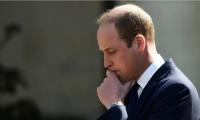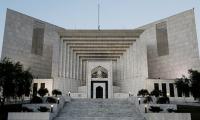DUBAI: Dubai, a city defined by its glittering towers and man-made islands, is stuck in a five-year property downturn with no end in sight, drawing warnings of an industry reckoning that will see weaker players fail.
Property developers are slashing prices and offering ultra-easy financing to lure customers, while concerned authorities have stepped in with incentives and regulations to revive the crucial sector. Ahead of the Expo 2020 global trade fair that Dubai hopes will deliver an economic windfall and some 300,000 new jobs, hundreds of mega projects have been unveiled in recent years, leading to an oversupply and a slide in prices. The government rushed to rescue the sector in 2018 with a raft of measures including easy visa terms for expatriate buyers and permanent residence permits for big investors. This month, a top-level committee was established to rebalance the oversupplied market. The Standard and Poor’s ratings agency has said the industry, which makes up 7.2 percent of Dubai’s economy, may not stabilise before 2021. “Over a period of time, some correction will happen,” exposing the strong and the weak in the industry, said P.N.C. Menon, chairman of Dubai-based multinational developer Sobha Group. The process, which will leave only the strongest firms standing, is likely to last for another three or four years, Menon told AFP at an industry expo where his firm was showcasing its latest multi-billion-dollar project, an 8.0 million square feet beachfront development of luxurious apartments and high-end townhouses.
Like Sobha Group, dozens of local and international property firms taking part in this week’s Cityscape Global event were offering unprecedented payment terms to drum up business. Buyers are being asked to stump up as little as five percent of the value of the property, down from 25 percent in the boom times, and pay the rest over 10 years or more straight to the developer — without the need for a bank mortgage. In a sign of the desperation, developers are also offering to cover the costly 4.0 percent municipality registration fee.
Property ownership in Dubai, which boasts the most diversified economy in the oil-rich Gulf region, is completely open to foreigners — both residents and visitors, and for investment or residential purposes.
But real estate deals in Dubai plunged 21.5 percent to $60.7 billion last year, according to government data. Property prices and rents have been on the decline since mid-2014, shedding around a third of their value. “As far as downward trends go, this one has lasted far longer than most, and far longer than most of us expected,” Lukman Hajje of research firm Property Finder said in a research paper. “With the amount of property still being launched, under construction, and being handed over — it’s unlikely that we have seen the bottom of the market just yet. Dubai property prices dropped by 5.8 percent in the second quarter of 2019, falling for the 11th quarter in a row according to central bank data. Despite the glut, last year some 22,000 new units were completed in the emirate, according to consultancy JLL, the highest number of new properties to enter the market in the past five years. JLL forecasts that up to 117,000 units could be added to Dubai’s housing pool by 2020, putting further pressure on prices in a city where glitzy apartments line the coastline, and gated communities stretch back into the desert.
Liberal Justice Elena Kagan on Sept. 13, 2016. — Slate website WASHINGTON: U.S. Supreme Court justices, wading back...
A representational image of inmates behind jail bars. — Unsplash/FileMOSCOW: A Russian court on Wednesday ordered...
Sudanese soldiers guard the surrounding area of the UNMIS compound in El-Fasher, the administrative capital of North...
US quietly shipped ATACMS missiles to Ukraine. — Report news agencyWASHINGTON: The United States in recent weeks...
US President Joe Biden during his address in California. — AFP FileWASHINGTON: President Joe Biden signed a...
The World Meteorological Organisation flag. — AFP FileGENEVA: Global temperatures hit record highs last year, and...







